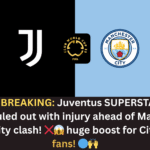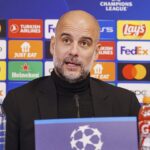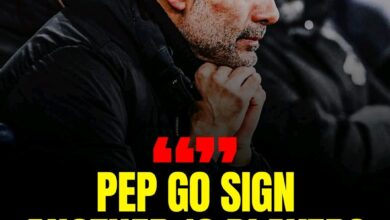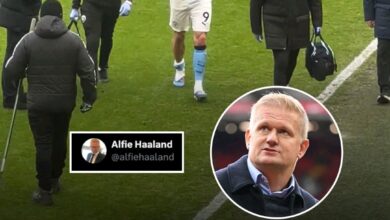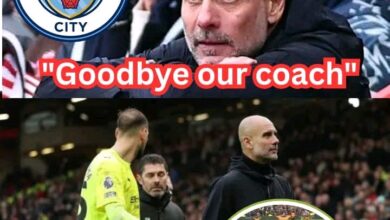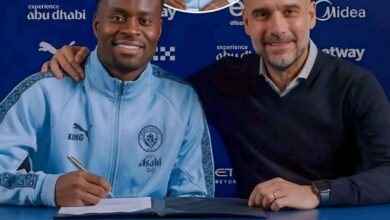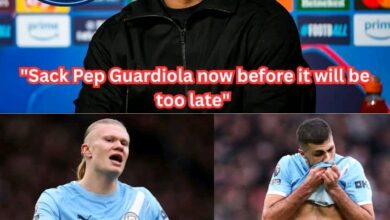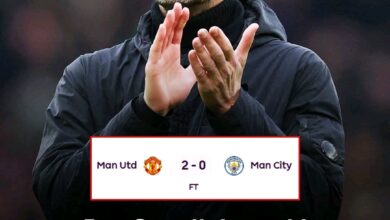Manchester City vs Aston Villa: Comprehensive Premier League Preview and Tactical Analysis
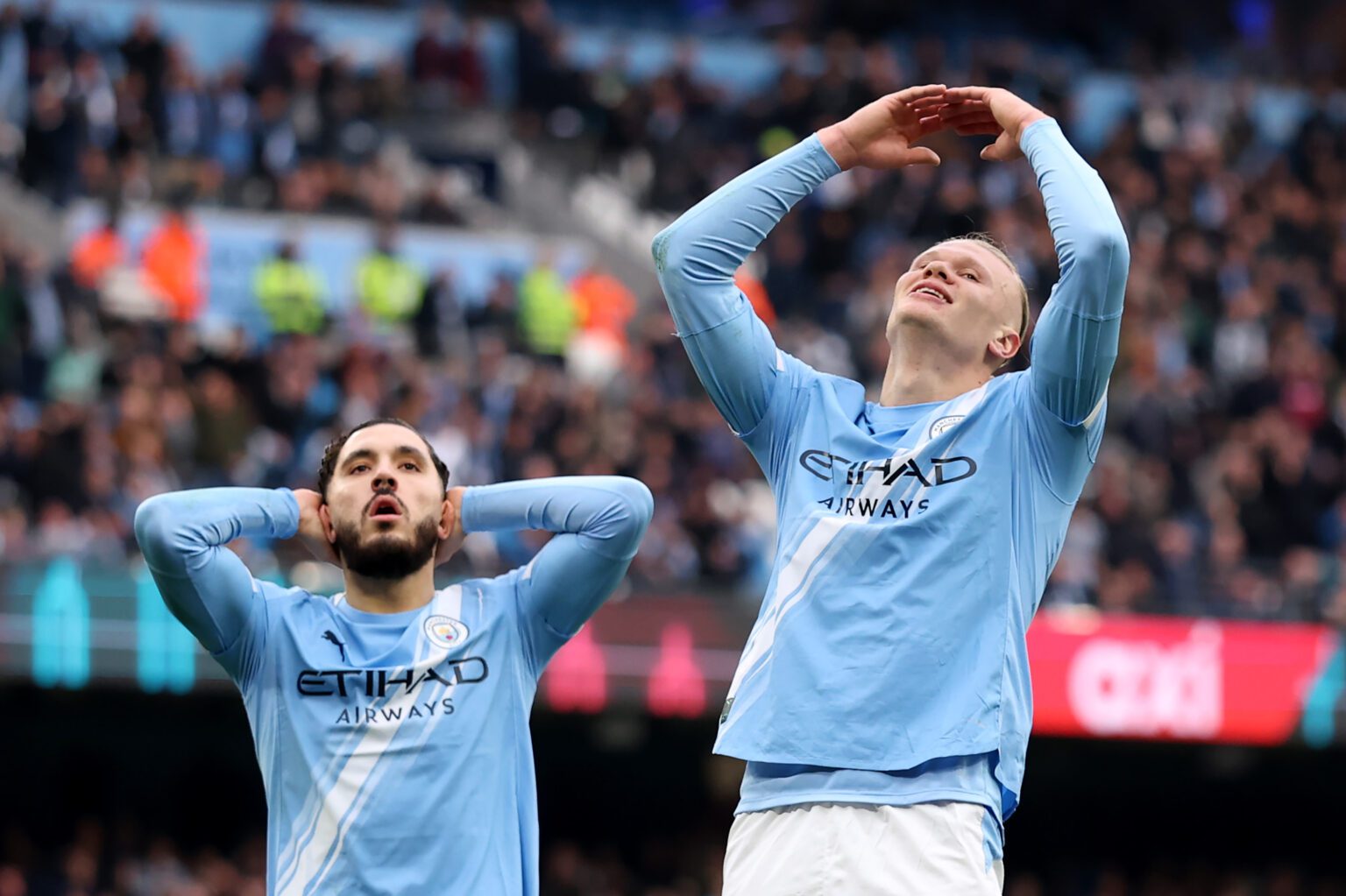
Manchester City prepare to face one of their most challenging away fixtures of the season as they make the journey to Birmingham for a Premier League clash against Aston Villa on Sunday. This encounter represents far more than just another fixture in the demanding English top-flight calendar—it’s a genuine test of City’s credentials and their ability to maintain momentum in what has been an impressive run of form.
The Citizens arrive at Villa Park riding a wave of confidence following their midweek exploits in the Champions League, where they delivered a professional and controlled performance against Spanish opposition. However, Villa Park has historically proven to be a difficult venue for Pep Guardiola’s men, and the home side will be eager to capitalize on their impressive record against the Manchester outfit in recent encounters.
City’s Champions League Confidence Boost
The confidence coursing through the Manchester City squad can be traced directly to their impressive midweek performance in European competition. Facing Villarreal away from home—a fixture that would have concerned many observers given City’s struggles in away Champions League matches over the previous twelve months—Guardiola’s side delivered a masterclass in efficient, controlled football that showcased their quality and experience.
The match was effectively decided in the opening forty-five minutes, with City asserting their dominance through two expertly taken goals. Erling Braut Haaland, continuing his remarkable goal-scoring form, opened the scoring with another clinical finish that demonstrated why he’s considered one of Europe’s premier strikers. The Norwegian’s movement, positioning, and finishing ability were all on full display as he gave City the perfect platform from which to control the contest.
Bernardo Silva, who has been instrumental in City’s success throughout this campaign, added the second goal before the interval. The Portuguese midfielder’s contribution exemplified the kind of quality and composure that has made him such a vital component of Guardiola’s tactical setup. His ability to operate in tight spaces, create opportunities, and finish chances has been invaluable to City’s ambitions across all competitions.
The eventual 2-0 scoreline represented not just a victory, but a statement of intent. More significantly, it marked City’s first Champions League away victory in over a year—a drought that had become something of an elephant in the room for a club with such lofty European ambitions. The clean sheet was equally important, demonstrating defensive solidity that will be crucial as the season progresses and the stakes become increasingly high.
This triumph in Spain has done wonders for squad morale and collective belief. After experiencing difficulties in European away fixtures, City have rediscovered their capacity to control matches on foreign soil. The confidence gained from navigating that challenge successfully will be invaluable as they face another difficult away assignment, albeit in a different competition.
The Villa Park Conundrum: Breaking the Jinx
While City’s recent form has been exemplary, one particular venue continues to present problems for Guardiola’s side. Villa Park has developed into something of a fortress against Manchester City, with the home side cultivating an impressive record against the Citizens in recent encounters. The statistics make for uncomfortable reading from a City perspective—they are currently enduring a three-game winless streak at this historic ground.
This unfortunate sequence represents an anomaly for a side that has dominated English football in recent years. For a team accustomed to sweeping aside opposition with ruthless efficiency, the inability to secure victories at Villa Park has become a source of frustration and a puzzle that Guardiola is determined to solve.
The reasons for City’s struggles at this particular venue are multifaceted. Villa Park’s atmosphere can be intimidating, particularly for visiting sides in high-profile fixtures. The home crowd generates tremendous noise and support, creating an environment that can unsettle even the most experienced professionals. Additionally, Aston Villa have developed tactical approaches specifically designed to frustrate City’s possession-based style, sitting deep when necessary and looking to exploit space on the counter-attack.
Villa’s home record against City has included moments of genuine quality, with the home side demonstrating they possess the technical ability and tactical discipline to compete with the Premier League’s elite. Whether through organized defensive structures, clinical finishing on the break, or simply the psychological advantage of knowing they have City’s number at Villa Park, Villa have consistently found ways to earn results.
For Guardiola, breaking this sequence is about more than just the three points on offer—though they remain the primary objective. It’s about demonstrating his team’s ability to overcome psychological barriers and solve tactical problems. City’s status as perennial title contenders means they must be capable of winning anywhere, against anyone, regardless of recent history.
The pressure is compounded by the fact that City are protecting an impressive nine-game unbeaten streak across all competitions. This run has been crucial in maintaining their position at or near the top of the Premier League table, and extending it would send a powerful message to their title rivals. Conversely, a defeat would not only end that streak but also raise questions about their ability to handle pressure situations away from home.
Guardiola’s Selection Dilemmas and Tactical Considerations
Pep Guardiola approaches this fixture with several important decisions to make regarding his starting eleven. The Spanish tactician is expected to make three changes from the side that secured victory against Villarreal, demonstrating his intention to keep the squad fresh while maintaining competitive intensity across multiple competitions.
Defensive Stability: Building from the Back
One area where Guardiola is expected to maintain continuity is in defense. Having kept a clean sheet in midweek—no small achievement given City’s recent defensive vulnerabilities in European away fixtures—the manager sees no reason to disrupt a backline that functioned effectively as a unit.
Gianluigi Donnarumma is set to retain his position between the posts. The Italian international has grown into his role at City, developing an understanding with his defenders and demonstrating the shot-stopping ability and distribution skills that made him such a coveted target. His presence provides confidence to the entire team, and his experience in high-pressure situations will be valuable at Villa Park’s intimidating atmosphere.
The back four is expected to remain unchanged from midweek. Matheus Nunes will likely operate at right-back, a position where his pace and technical ability allow City to build attacks from deep while providing defensive security. The Portuguese defender has adapted well to the demands of English football, showing the versatility that Guardiola prizes so highly in his squad members.
At the heart of defense, the partnership between John Stones and Ruben Dias continues to develop. These two players bring different qualities to City’s defensive structure. Stones provides elegance on the ball, stepping into midfield when appropriate and initiating attacks with his precise passing. His understanding of Guardiola’s tactical requirements is virtually unmatched within the squad, making him an invaluable component of City’s build-up play.
Ruben Dias, meanwhile, brings defensive authority and leadership. The Portuguese international’s reading of the game, aerial dominance, and organizational skills provide the foundation upon which City’s possession-based approach is built. His presence allows more adventurous players further forward to take risks, knowing they have reliable cover behind them.
Completing the defense at left-back will be Josko Gvardiol. The Croatian international has proven to be an excellent addition to City’s squad, offering defensive reliability, technical quality, and the physical attributes necessary to compete in the Premier League. His ability to drive forward with the ball and contribute to attacking phases has added another dimension to City’s play.
Midfield Concerns: The Gonzalez Situation
The most significant selection concern facing Guardiola relates to the fitness of Spanish midfielder Nico Gonzalez. The talented playmaker’s status for the Villa Park encounter remains uncertain after he was forced to leave the field early in the second half of the Villarreal match, clearly troubled by a foot problem that prevented him from continuing.
In the immediate aftermath of the substitution, Guardiola attempted to allay fears regarding the severity of the injury. Speaking to the media, the City manager characterized the problem as a minor setback—something that might keep Gonzalez sidelined briefly but shouldn’t represent a long-term concern. However, the reality is that Gonzalez’s availability for the Villa fixture remains genuinely touch-and-go, with a race against time now underway to determine whether he can recover sufficiently to feature.
The timing of this potential injury blow could hardly be worse for Manchester City. The team is already dealing with the absence of Rodri, whose importance to City’s system cannot be overstated. The Spanish international provides the defensive shield in front of the back four, breaking up opposition attacks, recycling possession, and setting the tempo for City’s play. His absence has forced Guardiola to reimagine his midfield structure and find alternative solutions to the problems Rodri typically solves with seeming ease.
Losing Gonzalez in addition to Rodri would represent a significant double blow to City’s midfield options. While Guardiola’s squad depth is the envy of most Premier League clubs, losing two players who occupy similar positions inevitably creates challenges. The manager would need to adjust his tactical approach, potentially asking players to operate in unfamiliar roles or adopting a different system altogether.
The concern extends beyond just this single fixture. With a demanding schedule ahead and crucial matches coming thick and fast across multiple competitions, City need all their key players available and firing. Any extended absence for Gonzalez would force Guardiola into selection decisions he’d prefer not to make and could impact the team’s performance during a critical phase of the season.
Attacking Rotation: Fresh Legs for the Final Third
While the defense remains largely unchanged and midfield selection is complicated by injury concerns, Guardiola is expected to make significant changes in the attacking positions. This rotation serves multiple purposes: keeping players fresh across a demanding fixture schedule, managing workload to prevent injuries, and ensuring that opponents face different challenges in terms of the attacking threats they must neutralize.
One of the most intriguing potential changes involves Rayan Cherki, who is reportedly in line to make his first start in two months. The talented attacker has been sidelined with a thigh injury that has kept him out of action since late summer, and his return represents a significant boost to City’s attacking options. Cherki brings creativity, unpredictability, and technical quality that can unlock even the most organized defenses.
Cherki’s return to the starting lineup would be carefully managed by Guardiola, who understands the challenges involved in reintegrating a player following an extended injury layoff. Match fitness and match sharpness are distinct qualities, and while Cherki may have recovered physically, regaining his optimal competitive edge will take time. Nevertheless, his inclusion demonstrates Guardiola’s confidence in his readiness and the value the manager places on having Cherki’s unique skill set available.
Joining Cherki in the attacking midfield positions would be Jeremy Doku, whose pace and directness provide a different attacking dimension. The Belgian winger has shown glimpses of exceptional quality since joining City, capable of beating defenders one-on-one and creating goalscoring opportunities through his individual brilliance. His presence stretches opposition defenses horizontally, creating space for teammates to exploit.
Tijjani Reijnders is another player expected to feature prominently in the changed lineup. The Dutch midfielder brings technical quality, tactical intelligence, and the versatility to operate in multiple positions across the midfield and attacking thirds. His inclusion would represent a change from the Villarreal match, where Rico Lewis featured, and would bring different qualities to City’s play.
Phil Foden, one of City’s most important and consistent performers, is also expected to start. The English international has been in exceptional form throughout this campaign, demonstrating the world-class ability that has made him indispensable to Guardiola’s plans. His movement between the lines, ability to receive possession in tight spaces, and clinical finishing make him one of the Premier League’s most dangerous attackers. Foden’s inclusion means that Savinho, who featured against Villarreal, will likely make way.
The Haaland Factor: Chasing History
Leading the line for Manchester City will be Erling Braut Haaland, the Norwegian goal machine whose scoring exploits have redefined what’s possible for a striker in the Premier League. Haaland approaches the Villa Park fixture with remarkable personal incentives beyond the team’s collective objectives, chasing milestones that would further cement his status among the competition’s all-time greats.
Most immediately, Haaland is targeting an unprecedented tenth consecutive game with a goal. This streak has seen the striker find the net in every match across all competitions, demonstrating the
